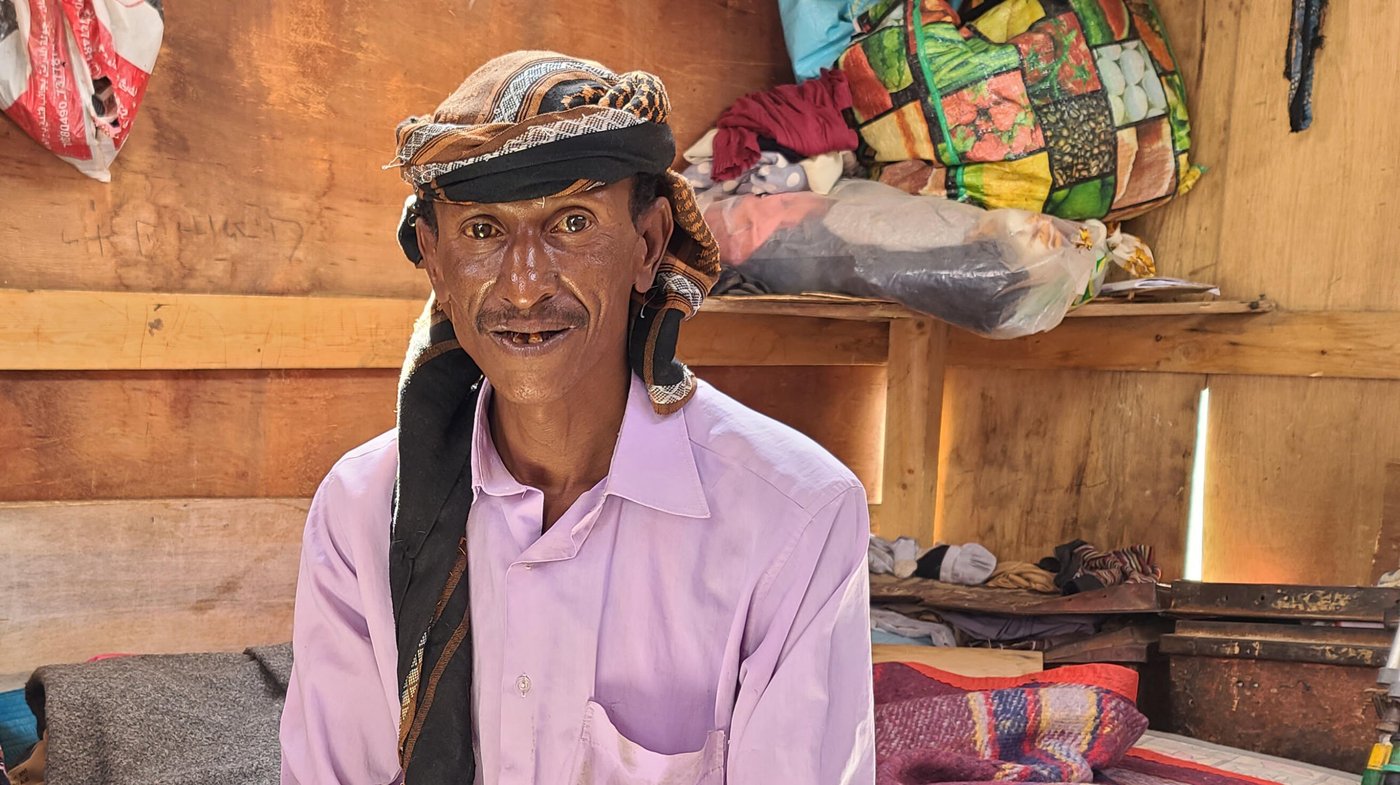“When I first arrived,” Mohammed says, “they gave us a tent and we assembled it. It was a home for us.”
The father of six speaks quietly, sitting on a mattress with his family. That first tent has since been replaced by a wooden shelter, provided by the Norwegian Refugee Council (NRC). The view outside is of unbroken swathes of sand.
“There were so many problems,” he continues. “With the hardship, with the shelter, with finding a place to sleep.”
The Norwegian Refugee Council (NRC) works to support refugees and displaced people in over 30 countries around the world, including Yemen. Support our work today
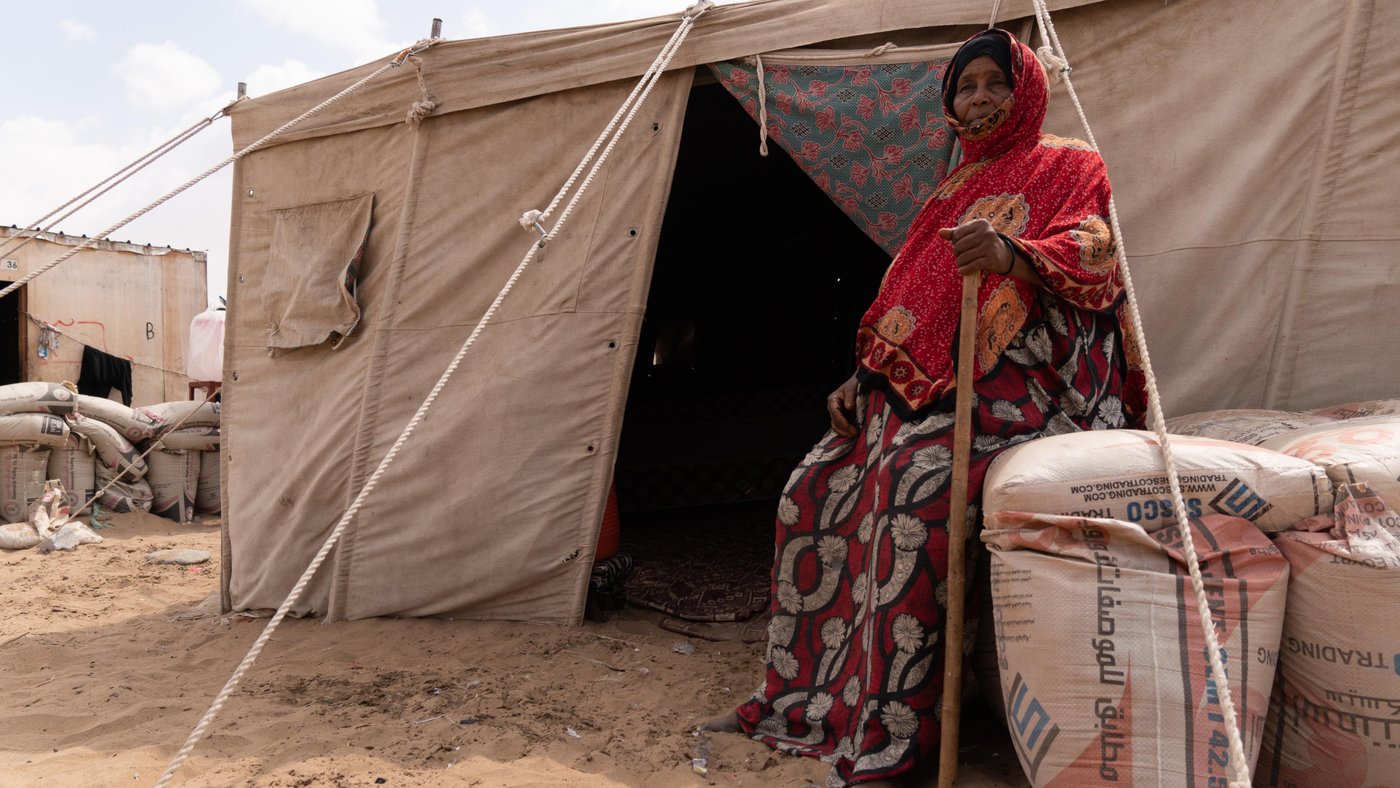
Building a life was not easy in Al-Anad camp, where there is little protection from the elements. There was no soil in which to plant anything and no obvious way to make a living. But Mohammed kept trying.
“When we first got here, I used to go out looking for work. I would get some vegetables and sell them in the market. My disability never got my spirits down.”
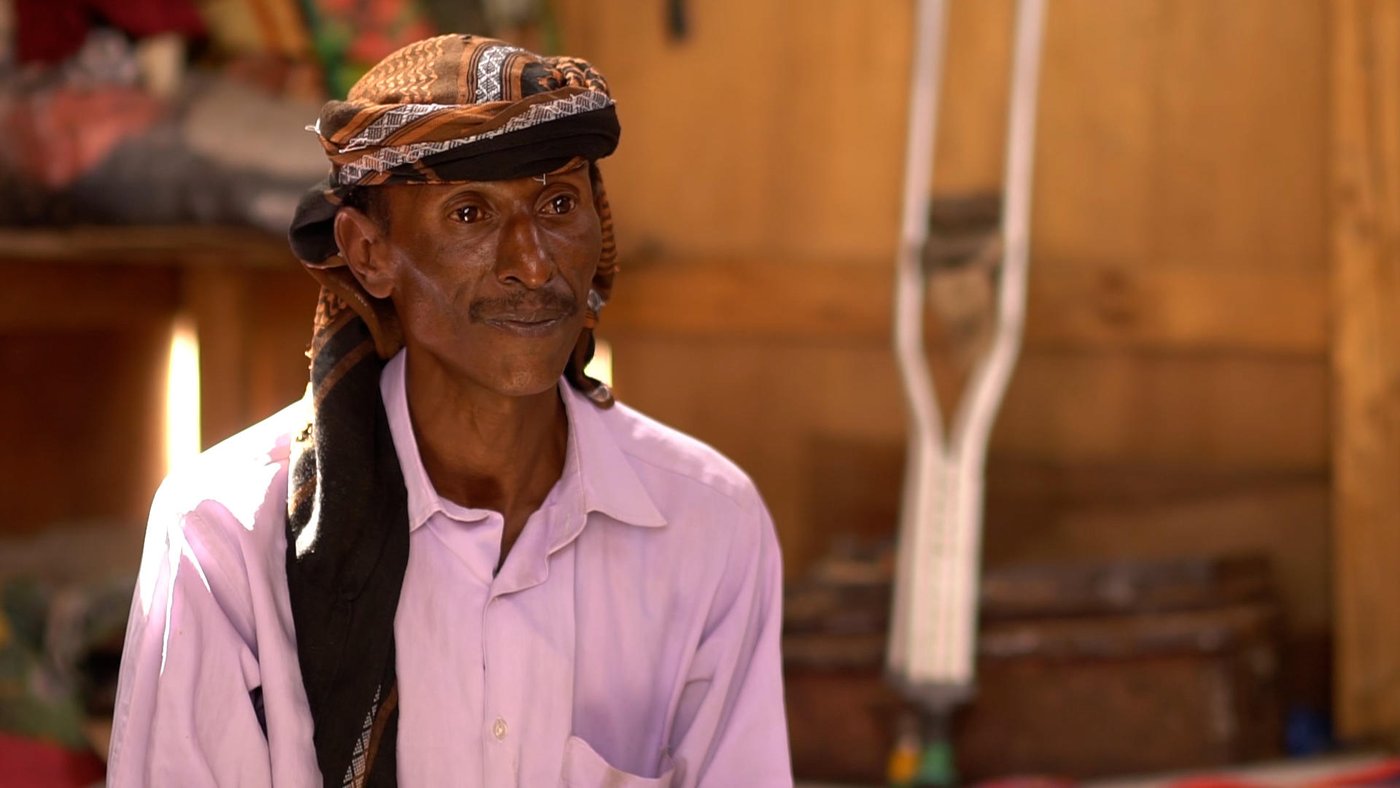
“I wanted to prove myself”
Mohammed lost his right leg during the war and uses a crutch. The sand surrounding the camp makes moving around a challenge. But, he says: “I have to work to provide for my children, If I did not, they would perish.”
Things started to change when he joined the residents’ committee, which was set up with humanitarian support from NRC and the European Union. Mohammed was assigned to the maintenance team.
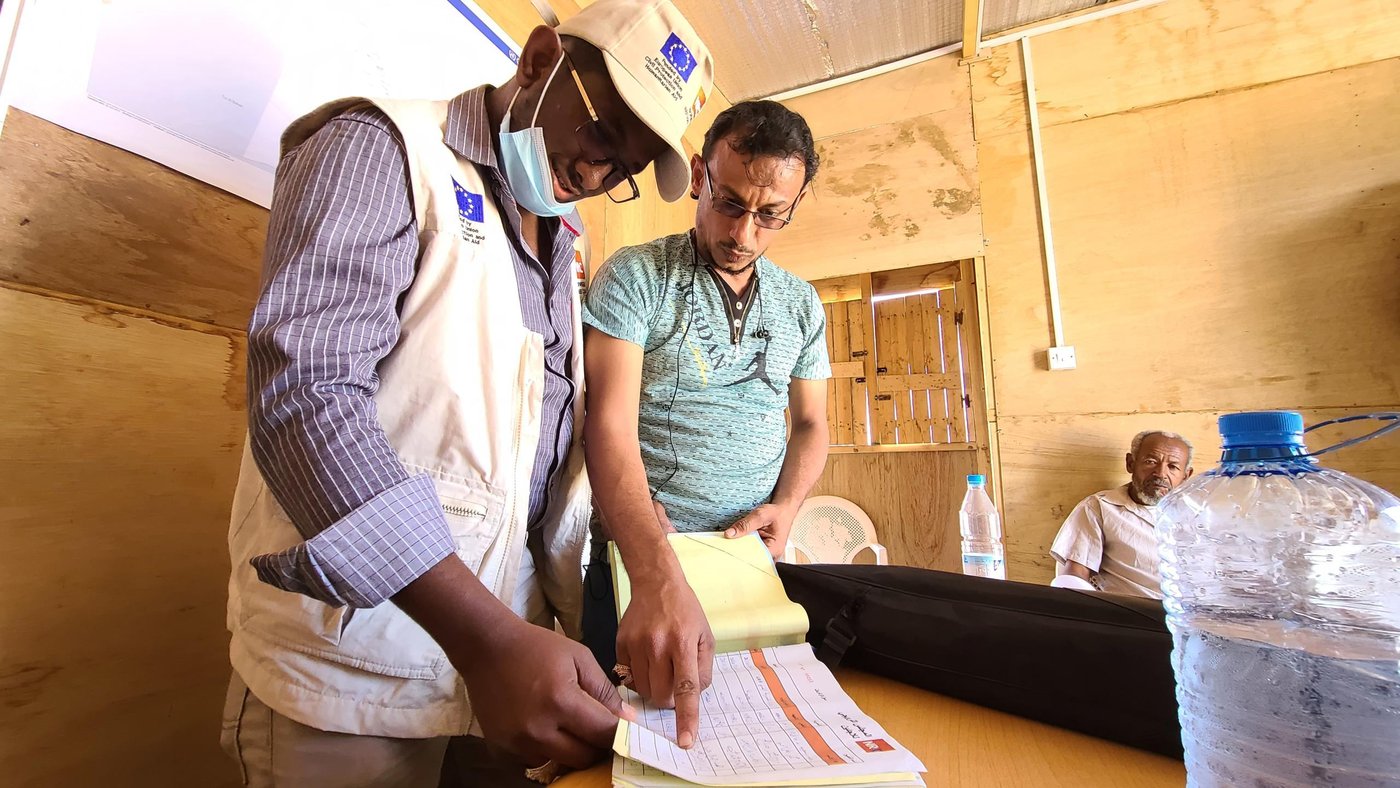
At first, the rest of the committee was doubtful. “People’s views toward me were not positive,” he smiles a little sadly. “Because I have a disability. They questioned if I could handle working in carpentry, maintenance and plumbing.”
NRC trained all the members of the maintenance team, including Mohammed, in a range of basic skills. The idea was that they would be able to mend, repair and even build things around the camp.
Each trainee was also given a set of tools. “They didn’t just train me,” Mohammed says. “They provided the tools I would need to carry on working.”
I have achieved things I wouldn’t have even dreamed of beforeMohammed
The training made a huge difference.
“Before I could not fix anything. With these skills I feel able to…,” Mohammed gestures with his hands, trying to find the words, “… to move. I have achieved things I wouldn’t have even dreamed of before.”
His new skills changed how his neighbours saw him. He has helped many of them, by mending damaged shelters and tents and even broken pipes. And this has opened up a new way to support his family.
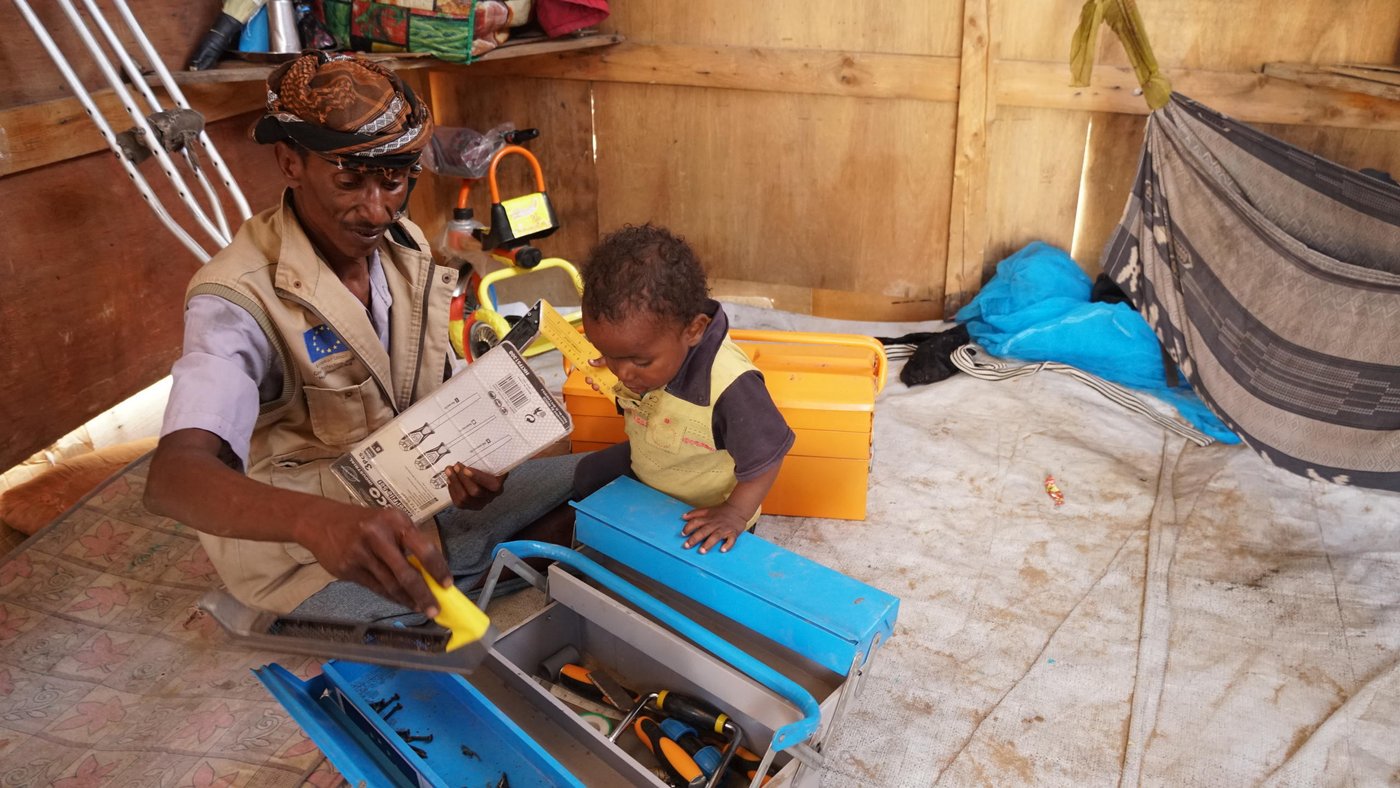
“Now, for example, when I am asked to do plumbing work – installing pipes and wires, or fixing a door, or any other job that makes me a living, even outside the camp – I am able to do it.”
“I wanted to prove myself – for me. And I did.”
A new kind of community
It has been six years since Mohammed’s family fled their home. They had no time to pack or think clearly about where they were going.
“I took my children and some blankets,” Mohammed says simply.
Al-Anad is not a permanent place to build a life. Most of its residents just want to go home.
“What I miss the most about my old home is the warmth,” says Mohammed, his eyes growing soft. “The cold and wind did not get inside. It was just one room, with a kitchen and a bathroom, not that big. But electricity all day. Alongside my parents, siblings and relatives.
Today they need me and tomorrow I will need themMohammed
“Now it is not like that. Now… now it is different. In a camp…” His voice trails off.
But despite his deep sense of loss, Mohammed feels part of a community at Al-Anad, one bonded together by the shared experience of being far from home.
“Today they need me and tomorrow I will need them,” he explains. “We have all fled from different areas – Hodeidah, Taiz, Dimt, Shuraijah and Al-Rahidah. We are one family now.”
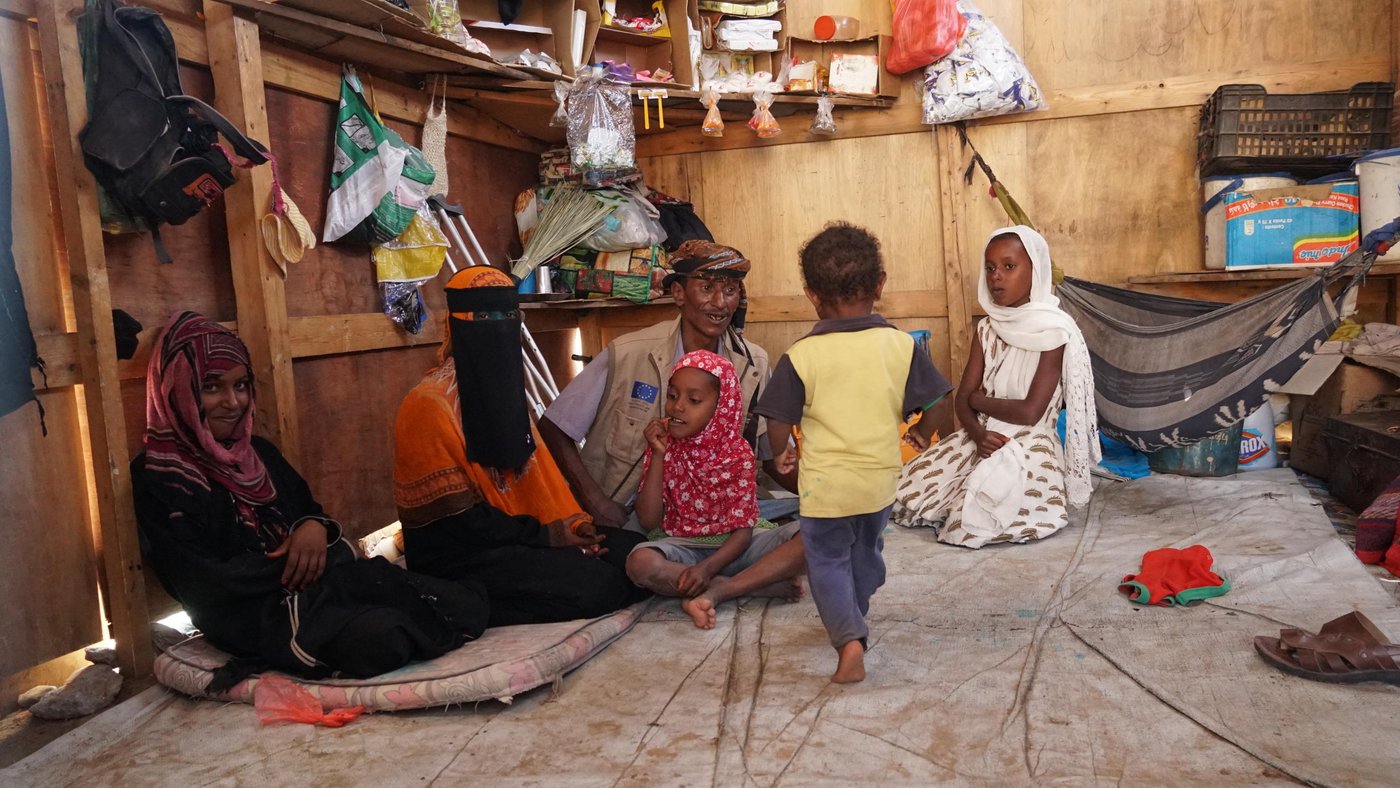
And with his new skills and tools, Mohammed has made all kinds of improvements to his simple wooden shelter. “The place I call home is the place I will live in,” he says, “where my family and I rest. This house, it is safe and away from all the problems.
“We live in peace in this house.”


